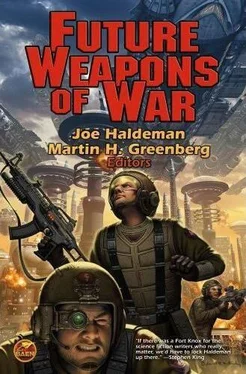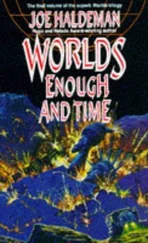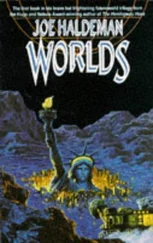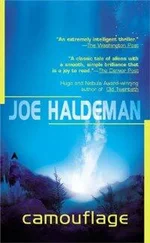FUTURE WEAPONS OF WAR
Edited by Joe Haldeman & Martin H. Greenberg
INTRODUCTION
Joe Haldeman
When John Helfers and Marty Greenberg asked me to edit this anthology, I have to admit that the title was irresistible. I’m not a nut about weapons, future or present, but I’ve carried them when, technically, my life depended on them—lugging them around 24/7, eating and sleeping with them, cleaning them incessantly and keeping ammunition close to hand.
Which has been the soldier’s lot for a long time, of course. What will the future hold? Self-cleaning weapons that make their own ammo? Somehow I don’t think so.
Like most soldiers, I had a love/hate relationship with the weapons I carried: they can protect or save your life, but they also make you a target. And sometimes they don’t work as advertised, or even turn on their owners.
In Vietnam, a couple of hours before I was to get on the helicopter that would take me out of the base camp and into war, I had an interesting colloquy with the company armorer, a chain-smoking sergeant who was obviously glad to be staying behind, he set four handgrenades in front of me and I had to tell him about raking leaves.
In Basic Training, which was a world away but only a few months before, we had practiced grenade throwing with one-pound, grenade-shaped lumps of iron. I was no good at it. As a kid, I could never throw a ball, and after six years of college had long since stopped trying.
You were supposed to be able to throw this little anvil forty meters; I couldn’t even get it forty feet. That was well inside the thing’s fifteen-meter radius of wounding. There was no way they were going to let me throw a real one. So when the time came for practice with live grenades, they arranged for me to go rake leaves in front of the officers’ living quarters. Everybody thought that was funny, the college boy draftee raking leaves because he couldn’t handle balls, but I guess I felt a little relieved, hearing a grenade go off every minute or so, glad to be humiliating myself by raking leaves rather than by losing an arm or an eye.
I’d never even seen a live grenade, and here I was in Vietnam with four of them sitting in front of me. I explained to the sergeant about raking leaves, and he applied the universal U.S. Army solution: Green Tape.
Green Tape is actually duct tape in camouflage, and is just as handy as its civilian counterpart.
In this case, you wrap it around each grenade a couple of times, so that even if the pin is dislodged, the thing won’t go off, because the arming lever won’t spring away. He advised me that I did have to carry them, regulations, but I could put them in the bottom of my rucksack and forget about them.
Then I got my assault rifle, the legendary M-16, that looked so cool from a distance. Mine had a dent in the plastic stock, which was gray with oxidation, and the barrel sported speckles of rust. Like many of them, its stock was defaced with scratched graffiti, in my case the disturbing observation THIS MACHINE DOESN’T WORK. I asked the sergeant about that, and he shrugged it off. The rifle had come from the brigade armory; there was nothing wrong with it. I asked whether there was someplace I could take it and try it out, and he was as shocked as a stateside pawnshop clerk would be. Hell, no, where do you think you are? Wait till you get out in the field.
Of course, when I got out in the field, they had a similar “where do you think you are?” attitude, with more justification. You don’t just go shoot a weapon in combat. Somebody might think you were shooting at something. Even them.
My job description didn’t involve shooting, anyhow. I was a combat engineer (Pioneer), which meant I got to blow up stuff while other people carried rifles to protect me.
I went through some months of combat without ever having to shoot, which was typical for engineers. They stay in the middle, with the officers and other technical folk, and only shoot when everybody else has been overrun, which fortunately didn’t happen to us.
I finally did try out the M-16—we had the occasional “mad minute” when everybody just faces outwards and blasts away, getting rid of old ammunition and inhibitions—and I could see that the message on the stock was inaccurate. It should have said THIS MACHINE WORKS AFTER A FASHION, BUT YOU BETTER HIT YOUR TARGET WITH THE FIRST ROUND. Because the second round in the clip came up sideways and jammed. I tried it again and it did it again. I had the only single-shot weapon in a fully automatic war.
I complained to my sergeant and lieutenant, and they said I’d have a replacement right away. I guess the request went to the same armorer who’d given it to me in the first place, though. Nothing ever happened, but then I’d never really wanted to shoot anybody, except maybe that armorer.
I did get to throw one hand grenade. It was probably one of the most expensive hand grenades ever thrown.
We were in a tense situation. A large North Vietnamese force was headed for Saigon, and we were in the way. We were on high alert, with “sound and light” discipline at night, no lights or noises.
When we were on guard at night, two hours on and two hours off, under no circumstances were we to fire our M-16s at the enemy. The muzzle flashes would give away our position. Throw grenades instead.
I tried to unwrap the tape on my grenades, but months of jungle heat and moisture had turned the Green Tape to a solid mass. I was able to cut free the arming levers with my Swiss army knife scissors, though, and I lined up the four instruments of destruction on the lip of my foxhole, so I could find them by touch in the dark.
And it was dark, dark as the inside of a black hole. Raining, though. We strained our ears, in case the enemy wasn’t constrained by sound discipline. And I heard something.
Someone was coming toward me through the woods. He wasn’t sneaking, either.
I did what I’d been told, whispering into the radio, “Tiger-one, this is Tiger-seven. I have movement.”
The answer threaded back: “Chuck a grenade at ’im.”
I didn’t have time to explain about raking leaves and all. Before long, the guy was going to be close enough so that even I could hit him. I worked the pin out of the grenade and pointed my left hand out into the darkness, as I recalled having done with the one-pound dummies, and heaved the little bomb with all my might.
Straight up, approximately. Or so it felt.
I yelled “Fire in the hole!”—engineer-speak for “Big noise coming!”—and heard lots of people crashing around, getting into their respective holes (or probably just the nearest one), and, about three seconds later, the grenade exploded, very loud, though not as close to being in our laps as I had feared.
(Note: An actual grenade is not at all like the ones they have on television, which make a big orange flame and throw cars around. They really make a little puff-cloud of gray smoke and a small flash, with dangerous bits of metal singing and whirring through the air.)
Somebody yelled “Incoming!” and all hell broke loose. We had about a hundred and fifty guys in our circle, armed to the teeth, and they now thought somebody was shooting at them. Well, maybe somebody was. In a couple of minutes, a nearby artillery base joined in, pounding the woods around us with high explosive and white phosphorous. Then a couple of gunships came throbbing up and added their guns and rockets to the show.
It seemed to go on for a long time, but it was probably only about 45 minutes. Then eerie quiet, illumination rounds falling under parachutes, their magnesium flares hissing and crackling. Call it $150,000 worth of ordnance, in 1968 dollars.
Читать дальше












